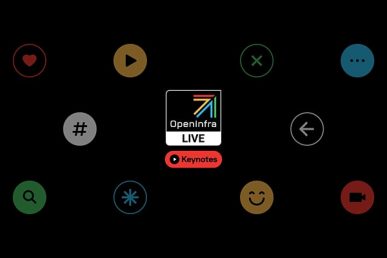Over the past year, the definition of open source has been challenged, as some companies wanted to change the licensing of their software while continuing to reap the benefits of calling it open source, or at least the benefits of being potentially confused with open source.
That makes the work of the Open Source Initiative more important than ever. For more than 20 years, the OSI has been a steadfast guardian of the Open Source Definition. They’ve kept it focused on user freedoms, evaluating new proposed software licenses against that definition, while discouraging further license proliferation. They’ve also been instrumental to the success of open source through their tireless advocacy and education work.
These objectives resonate with the work we do at the OpenStack Foundation (OSF). Today open source is necessary, but not sufficient: users of open-source licensed software are sometimes denied some of the original free and open source software benefits. We need to go beyond how the software is licensed and drive new standards on how open source should be built. Users should be able to tell easily the difference between a truly open collaboration guaranteeing all of open source benefits and single-vendor or open core projects.
“Without this single, standard definition of [the kilogram] or other fundamental units, commerce as we know it would not be possible. There is no trust in a world where anyone can invent their own definition for units, items, and concepts on which others rely, and without trust there is no community, no collaboration, and no cultural or technological development,” OSI, affirmation of open source definition.
This work cannot happen unless we base it on a strong and steady open source definition, focused on user freedoms. That’s why two months ago the OpenStack Foundation joined other open source organizations in signing the affirmation of the open source definition. That’s also why today the OSF is joining the Open Source Initiative as an affiliate member.
I’m looking forward to working closer with the OSI on those critical topics, and discuss challenges in the future of Open Source with them.
About the author
Thierry Carrez is the vice-president of engineering at the OSF and an OpenStack Technical Committee elected member. A long-time advocate of free and open source software and Python Software Foundation fellow, he was previously involved with Ubuntu server and Gentoo Linux security.
- Thirteen Years of OpenStack - July 19, 2023
- Why You Should Join Me at the OpenInfra Summit - May 1, 2023
- 2021 OpenInfra Annual Report: State of OpenInfra - January 26, 2022

)










